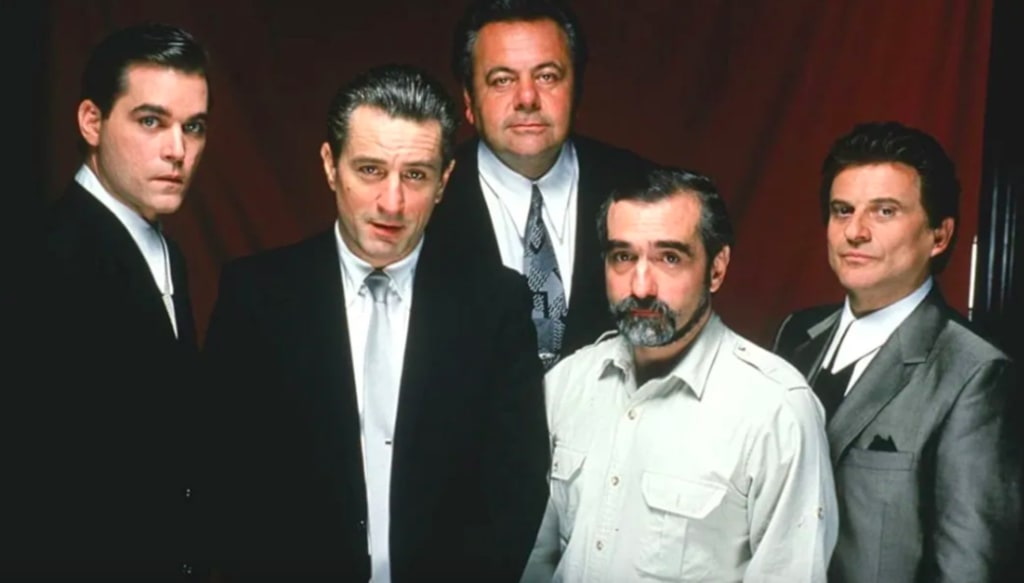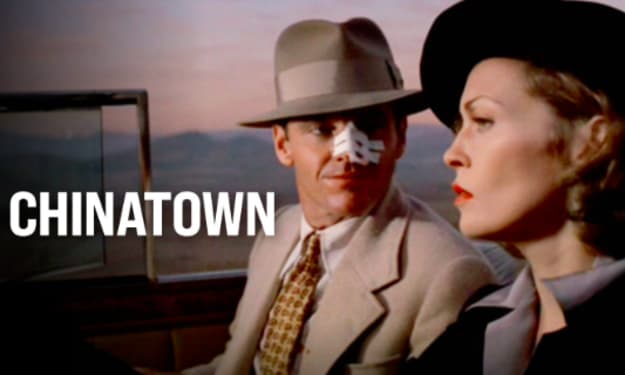Goodfellas-Martin Scorsese (1990)
Movie Review

It was initially called "Wiseguy," just like the investigative journalist Nicholas Pileggi's novel (which served as inspiration for the screenplay), and proposed a fictionalized autobiographical account of a real character, thus providing an analytical incursion into the inner workings of the mafia. The idea of such a portrayal was different from previous approaches, which, although they exceeded the boundaries of impartial observations or went as far as suggesting organizational relationships, never reached the intimate mechanisms of the phenomenon or the fascination it exerted on others, where only opulence was correctly received.
For all of us, the initiative had the fortunate chance of bringing together, through a miraculous confluence of circumstances, the most suitable people who could have ever built a sui generis story.
Both Scorsese and Pileggi...Liotta, DeNiro, and Pesci had recent Italian ancestry that nostalgically brought them closer to the heart of the story; they had memories associated with those in the plot, but above all: they had a complementary rhythm to the narrative. This made possible a new way of working, one that propelled Goodfellas into the pantheon of innovative cinematography crowned with immense success.
When Martin Scorsese receives Pileggi's brochure from a friend, his decision not to make films about gangsters had already been made public. However, the effect of reading it is so powerful that he has to reconsider everything. Within a few days, the following telephone conversation takes place: Scorsese: "...I've been waiting my whole life for this book," and Pileggi's response: "...I've been waiting my whole life to receive a call like this."
And we're not even talking about a book that is so well-written, because the subject is quite common in the press of the time, and the journalistic style used imposes a certain circumspection on the reader (one that seriously affects emotions), randomly combining literary transpositions of cases circulated in the press. It seems more like a record than a writing. But it is precisely the lack of imaginative additions that gives value to the novel, and that provides the solid basis for any script, so the scenes are explained to the actors, and they are encouraged to improvise, performing without a script, strictly within the limits of a superficially sketched character.
The scenario and dialogues of this film were written by all participants, and only then were they acted out and put on paper. And amazing things continue to happen on set, unforeseen by anyone. Apart from the scenes with remarkable impact, the roles come to life, and the characters in the film become powerful, spectacular, and full of tension and credibility. It's not like we're peeping through a keyhole, listening in with federal microphones, or spying with the prosecutor's tools... Nope... this time we are part of a large family, defending our interests, becoming, building, or consolidating our fame, motivating ourselves, and explaining ourselves only to ourselves... not to anyone else.
Martin Scorsese doesn't leave anything to chance... in Raging Bull when you catch the observer's attention, you take them on a cascade until the first intermission, that's the rule, and in Goodfellas, nothing stops. Because of the abundance of "slice of life" shots, short, perfectly synchronized clips of the soundtrack, and the voice-over first of Hill, then of Karen (another superb idea), fills all the neutral moments to the brim...
Of the productions that have significantly impacted the audience, most leave us shortly after the end of the screening, and the ones that remain are kept in dispersed sequences, memorable lines, fragments of heroic or shocking trajectories of individuals, through props, stunts, key scenes, electronic processing, sound, top musical pieces, etc... However, this film installs itself in the spectator exactly like a lived experience... like something that happened to them, and something they remember with a broad range of emotions, from which shame is absent, even though during the viewing process reprehensible, even condemnable things occur. In our structure, however, consciously hidden are other types of capabilities, aspirations, and needs... Whether we admit it or not, we long for easy and undeserved gains, for respect out of fear, for envy of those we perceive as enemies, or for admiration from those we consider friends (two categories with too few differences between them).
About the Creator
Andreea Sorm
Revolutionary spirit. AI contributor. Badass Engineer. Struggling millennial. Post-modern feminist.
YouTube - Chiarra AI






Comments
There are no comments for this story
Be the first to respond and start the conversation.